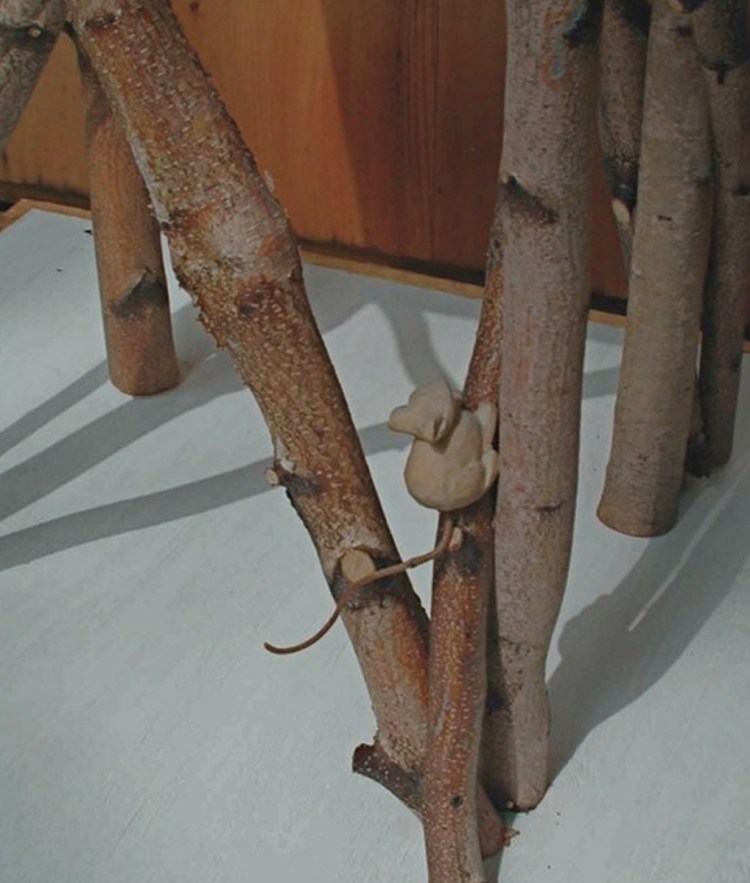A life-sized, hand-carved mouse scurries up the sapling leg of a rustic table that’s typical of the work Eve Abreu does in her South Portland Ravenwood studio. On another table, the “friendly visitor” perched on the piece is a squirrel. Abreu’s rustic wood furniture, made mostly from maple and birch, brings the outdoors inside in charming ways.
Abreu worked as a restoration carpenter in western Maine for 12 years before striking out on her own about a decade ago. Her business is small; people find out about her work through word-of-mouth or, as I did, by stumbling onto her website, maine-rustic.com.

Eve Abreu worked as a restoration carpenter in western Maine for 12 years before striking out on her own about a decade ago.
The concepts of reuse and recycle run throughout her work: She gives new life to wood that’s fallen to the forest floor and restores damaged furniture so it can be passed down to another generation. She prefers gathering wood in the spring, when more liquid runs between the bark and the wood and the bark peels off easily to reveal a branch that “almost looks like bone.”
“When it’s lying around in the woods, it tends to pick up all kinds of little critters you don’t want,” Abreu said. “I like fresh saplings.”
She scours old furniture tossed onto the streets for interesting hardware or other accents she can re-use in her own work.
Inside Abreu’s own home is a large dining room table she made with a trough flowing down the middle of it like a stream. The trough holds stones she has gathered at Willard Beach and in her travels to places like the Arctic. Her dinner guests are encouraged to pick them up and handle them. “I want it to be organic and fluid, like a river would be,” Abreu said.
Abreu also loves to carve, especially animals and especially ravens, and occasionally she adds a carved woodland creature to her tables. She just finished an art piece for her own home made from a hollowed-out log that sat in her shop for five or six years. She finished hollowing out the log and carved a little fox, who now peeks out at the world. The wooden animals she attaches to her pieces are inspired, she says, by the work of British furniture maker Robert “Mouseman” Thompson (1876-1955), who was known for carving mice into his work.
Abreu says she’s able to keep her prices on the low side by selling her work directly to customers, so the best way to see her furniture is to visit her website or make an appointment to visit her workshop. She charges about $200 for small tables and between $200 to $600 for benches. A larger, more dramatic piece like her dining room table could go as high as $5,000, depending on the size and design of the piece.
— MEREDITH GOAD
Send questions/comments to the editors.


